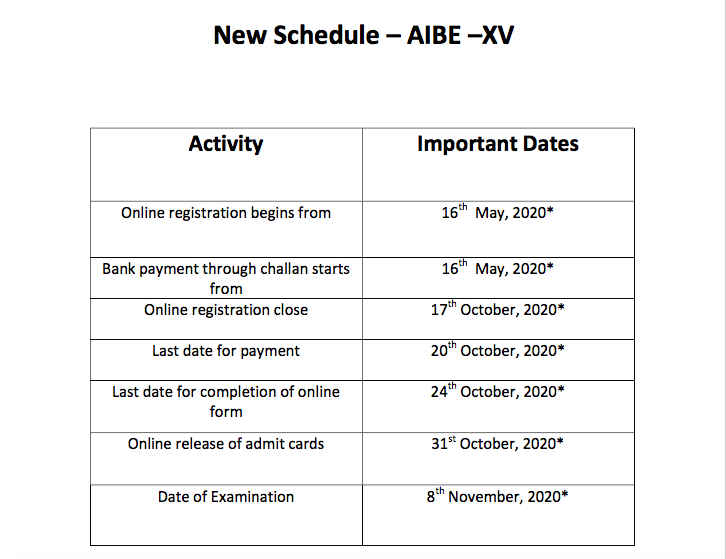This article is written by Ramanuj Mukherjee, CEO, LawSikho.
You have exactly 2 months to prepare for AIBE XV or the All India Bar Exam.
Now would be the right time to awaken the inner Mike Ross in you. The exam is not believed to be difficult yet tons of people fail it every year due to some missteps and miscalculations.
Unlike the New York or the California Bar, India only has one central bar exam for the whole country.
The exam is supposed to happen every 6 months but realistically happens only once a year. The Bar Council of Delhi gives 3 years for a provisional license holder to clear the AIBE.
With the batch of 2020 not having ample opportunities for work, this would be a great time to crack the exam and get over with it, especially because many employers are asking for it. The difference between an internship and a job could be whether you are a qualified lawyer.
I am writing this for every young lawyer who has to pass this exam to keep holding on to their license to practice. If you know anyone, please forward them this mail. In this mail, I want to give you some practical tips and tricks to sail through the AIBE sans any risk or loss of sleep.
What are the biggest reasons for failure in the AIBE?
- Thinking the exam is too easy to crack
The age-old problem of overconfidence is a recipe for disaster. Contrary to popular belief, open book exams are not easy to crack, you have to have a plan and strategy in order to attempt this exam. Winging it on the last day may not be possible unless you have a modicum of preparation.
- Trying to study a lot and memorise a lot of facts
It is pointless to cram so much as the AIBE is not known for testing your memory. Nor does it test your conceptual clarity. It is not like these are the most relevant questions for your future practice of law. The smart thing is to identify a method which works to get the pass marks, by finding the right answers within the given time. You need to get good at finding the right answers, not cram everything possible from the massive syllabus.
- Carrying the wrong material to the exam
You can not possibly carry all the relevant material to the exam centre. People carry commentaries with them to stay safe but this typically backfires. The one tip that we give to everyone is to only carry bare acts. And the right ones. There are some exceptions though.
Ever since December of 2012, the bar exam focuses heavily on the bare-act based questions which have continued over the years.
- Not having enough practice
Timing is critical. If you are slow, you need to practice till you are fast enough to answer 50% questions correctly, and reliably after finding the answer from carry in material. Best way to know if you can do this is to practice some mock tests.
It is difficult to be self-disciplined to take mock tests and thoroughly analyse the results on your own. Instead, having a tool that monitors your timing and gives you your performance analytics works better. When you actually sit down and analyse your performance in mocks, you have a chance to sit down and understand where you go wrong and prevent those mistakes in the actual exam.
- Avoiding external support or training
All of us love to do things on our own, why should you not buy a book instead of a course which is much more expensive? Well, consider the alternative of you not being able to crack the exam. It does sound heroic, managing things on our own. But it does not fetch you any additional prizes. Please sit down and assess your preparation for the AIBE and make a viable and real strategy, you have 2 months. In our experience, systematic preparation always pays off.
Time management is important
The AIBE is one exam where you have the leverage of navigating your answers through books and notes during the exam. Well, not other jurisdiction bar aspirants get that sort of benefit.
Time management is an important skill for any student or professional!
Most successful people either academically or professionally know how to manage their time efficiently. Time management is a skill which will not only help you in your careers but also in other spheres of life.
Due to the vast syllabus of the AIBE, the aspirants get extremely confused during the exam wasting a lot of their precious time in just finding the answers rather than answering the questions. You should keep the following things in mind before appearing for not just the AIBE but any open-book examination:
- ORGANIZED NOTES PREPARATION: Make sure your notes are concise and can be easily navigated. If your notes are organised then it will save you a lot of time during the exam.
- ORGANIZE YOUR CARRY IN MATERIAL: Make sure to organise and familiarize yourself with the study material that you are going to carry for the examination. At Lawsikho, we provide hack sheets on various subjects and concepts to our learners for easily navigating the appropriate answer to a particular question easily without wasting much time.
- ORGANIZE AND ACCESS YOUR TIME: The AIBE is a 3 hrs 100 marks paper. 3 hours may seem like a lot of time, but it’s just 1.5 minutes for each question. In these 1.5 minutes, you need to first find the relevant book and then navigate the correct answer with the correct interpretation as well. That can be too much for 1.5 minutes alone, therefore, make sure you keep a tab on the amount of time you are spending on each question. Also, make sure to answer each and every question as the AIBE does not carry any negative marking.
- MAKE A STUDY SCHEDULE: Well, there are certain preparations that one must do before the examination as well. It is important to study the basic concepts of each subject in order to not easily navigate a particular answer as well. At Lawsikho, we take the weekly concept and practise classes with our BarHacker learners wherein the basic concepts of each subject is taken up and thereafter live questions are asked from that subject.
- PREPARE CASE LIST AND MAXIM LIST: A lot of questions in the AIBE comes from case laws and maxims, therefore, it is a must that every aspirant prepares a list of landmarks and latest case laws and maxims for the examination. It is also advised to carry a normal as well as a legal dictionary for the examination.
- DO NOT SOLELY DEPEND UPON YOU CARRY IN MATERIAL: Though it is important for a person to always refer and re-check your answers from your reference material. But most of the time, students in a pursuit to find the correct answer from the reference material, waste a lot of precious time on one question. Make sure you do not do this otherwise you may lose on time for other questions. If you do know a particular answer you can always leave it for the end and deal with it when you are revising your paper.
What books should I carry for the AIBE?
This is one of the most common questions that I have come across while mentoring students for the All India Bar Examination. It is an extremely important question to deal with right at the beginning of your preparation because, in an open book examination such as the AIBE, you must know “how to find your answers?”
Before we delve into the list of books, you must know the exhaustive syllabus of this year’s examination which along with other details of the exam can be found here.
- BARE ACTS AND RULES:
-The Constitution of India.
-Indian Penal Code, 1860
-Criminal Procedure Code, 1973
-Code of Civil Procedure, 1908
-Indian Evidence Act, 1872
-Arbitration and Conciliation Act, 1996
-Advocates Act, 1961
-Bar Council of India Rules, 1975
-Information Technology Act, 2000
-Income Tax Act, 1961
-Goods and Services Act, 2017
-Indian Contract Act, 1872
-Specific Relief Act, 1963
-Transfer of Property Act, 1882
-Negotiable Instruments Act, 1881
-The Right to Fair Compensation and Transparency in Land Acquisition, Rehabilitation and Resettlement Act, 2013 (also the Land Acquisition Act, 2013)
-The Designs Act, 2000
-Copyright Act, 1957
-Trade and Merchandise Marks Act, 1958
-Patents Act, 1970
-Companies Act, 2013
-Environment Protection Act, 1986
-Forest Conservation Act, 1980
-Wildlife Protection Act, 2002
-Motor Vehicle Act, 1988
-Industrial Disputes Act, 1947
-Minimum Wages Act, 1948
-Maternity Benefit Act, 1961
-The GI Goods (Registration and Protection Act), 1999
-Consumer Protection Act, 1986 (Carry the amended act of 2019 as well)
Also, I would suggest that if you do not want to buy so many bare acts you can also buy a book named Central Civil Acts which has 100 bare acts in it but make sure the aforesaid list is covered under this book. As far as criminal law is concerned you can also buy the criminal manual which has the IPC, CrPC and IEA in it
2. Universal Constitution of India
3. Intellectual Property Law by any private publication
4. Past year solved papers (Make sure you solve the paper on your own)
5. For Administrative Law and Public Interest Litigation – the books on Constitution shall suffice
6. Landmark case laws
7. Legal maxims list
8. Hacksheets
This is an exhaustive list of books that are recommended to be carried for the AIBE examination, however, candidates may make alterations to the list as per their familiarity with the study material. I would also recommend not to carry too many books and overburden yourself as it also might leave you confused during the exam, instead make sure you carry study materials you are familiar with. That should be a priority.
Introducing you to the BarHacker course from LawSikho
Barhacker by LawSikho gives you a three pronged strategy to crack the bar exam:
- There should be a systematic preparation for quick progress – The course helps you in analysing previous year questions. That helps you in identifying the different types of questions and how to attempt those questions;
- Superior learning materials and build familiarity to find answers quickly – The BarHacker course, candidates take the wrong material with them to the exam centre or take too much time to find the questions. You will have access to our proprietary HackSheets which will help you find answers faster; and
- Doubt clearing sessions phased testing system for assessment and last minute revision plan: We offer all these in our BarHacker course.
What is so special about the BarHacker course?
- We have weekly classes and live doubt clearing sessions every week running up to the date of the bar exam.
- We have a non-classroom standard version as well. But we recommend the classroom version for additional learning and getting clarity on these basic subjects which you will not only use in the bar exam but even in your career going ahead. This is a solid upskilling opportunity, before the bar exam, if you have not learnt subjects like CPC, CRPC, Administrative Law or Evidence very well!
- The classroom version will include live practice from past years’ papers to build confidence.
- We will also guide you to read a bare act without the usage of the unavoidable ‘Ctrl + F’.
- If it is too time taking for you to read tons of material then there is nothing better than our weekly classroom sessions.
- Special doubt clearing sessions will also be organised to clear your doubts.
- You can get doubts clarified on our dedicated WhatsApp group as well as inside the learning management system.
Check out our 500+ webinars on YouTube
LawSikho offers amazing webinars that you can attend and learn from, with no charges, every day. Now we are even giving certificates to those who attend the full webinar. Check out some of our past webinars here: https://www.youtube.com/c/LawSikho/
While you can see past recordings of webinars on our YouTube channel, to participate in one personally is quite a different experience, as you can ask questions and interact with such amazing speakers and even other attendees. How can you attend these webinars in person? Sign up over here. Check out our thorough English and Hindi current affairs updates too.
Here is the webinar schedule for the next 3 days:
1) Anxiety in the legal profession with Aditi Duggal, Associate, Mundkur Law Partners
Date: 8th September, 6 pm
Register here.
2) Nuances of Abetment to suicide in light of famous cases with Ramesh Gupta, Advocate
Date: 8th September, 7 pm
Register here.
3) How to find the passion of your life? with Ramanuj Mukherjee, CEO, Co-Founder, LawSikho
Date: 8th September, 9 pm
Register here.
4) IDPs and Refugee Law with Pranav Tanwar, Lawyer based out in New Delhi
Date: 9th September, 12 pm
Register here.
5) Scope and extents of power to amend the Constitution under Article 368 with V C Shukla, Managing Partner at Prudentia & Partners
Date: 9th September 4 pm
Register here.
6) Three major trends that will change legal landscape in India with Ramanuj Mukherjee
Date: 9th September, 9 pm
Register here.
7) Significance of legal research and writing for law students and budding lawyers in the 21st Century with Tejas Sateesha Hinder, Student, National Law Institute University, Bhopal
Date: 10th September, 6 pm
Register here.
Do not forget to register. Hope to see you all there!
Do you know about our workshop?
LawSikho has been organising a ‘How To Get An Internship And A Job In A Law Firm’ workshop for the last two months. We keep getting requests to do more of these. On popular demand, we are organising this workshop on the 14th and 15th of September.
This workshop is for everyone who is interested in working at a law firm in the future, especially law students and young law graduates. This workshop is managed and hosted by two of our co-founders at LawSikho and our placement head. This workshop is a value add for every attendee and we keep getting positive feedback for it.
Do not miss it if you intend to work at a law firm in the near future.
To your success,
Team LawSikho
LawSikho has created a telegram group for exchanging legal knowledge, referrals and various opportunities. You can click on this link and join:
 Serato DJ Crack 2025Serato DJ PRO Crack
Serato DJ Crack 2025Serato DJ PRO Crack












 Allow notifications
Allow notifications


